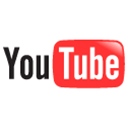
Lessig is a founder of the Centre for Internet and Society, co-created the Creative Commons license and is a known proponent of reduced legal restrictions on copyright, trademark and radio frequency spectrum, particularly in technology applications.
Copyright restrictions are designed for a world in which a small elite creates media for the masses, but such a structure is an historical anomaly, Lessig pointed out. Consumers were used to produce and create their own entertainment before the creation of mass media.
"Never before had a production been as concentrated and as professionalised, " Lessig noted.
Lessig described the original situation as a read-write structure, where individuals are able to both create and consume media. The copyright restrictions of the twentieth century however form the equivalent of a "read only" culture.
Examples of the "read-write" culture are commonly found on services like YouTube, where consumers mix and match existing media to create new media and express opinions, exercise criticism or propagate political views.
"The law as currently architected smothers this read write creativity," said Lessig.
He added that artist have a right to be compensated for their work, but charged that society needs to strike a balance between preventing piracy and the ability for individuals to "build and spread our culture".
Children today are already practicing the read-write culture, Lessig pointed out.
"We can't kill this, only criminalise it. We can't force them to become the same couch potatoes that we are. We can only make them pirates."
Lessig concluded that we are living in an "age of prohibition" and called upon open source developers to create technologies that challenge the notions around copyright. They have demonstrated an ability to challenge conventions before when they defeated the Windows monopoly, he argued.
b
Several artists for instance have released music under the creative commons license that Lessig co-created, promoting others to mix and use it to create new culture forms. He also referred to services such the Gnash free Flash initiative and the Ogg Vorbis open source audio encoding format.
Open culture isn't just an idealistic, left-wing project, Lessig stressed. It will also foster economic growth.
"Only you can teach that to those outside of your world," Lessig told delegates at Linuxworld. "Elsewhere too few of us get it."


_(28).jpg&h=140&w=231&c=1&s=0)
_(33).jpg&h=140&w=231&c=1&s=0)
_(23).jpg&h=140&w=231&c=1&s=0)





 iTnews Executive Retreat - Security Leaders Edition
iTnews Executive Retreat - Security Leaders Edition
 iTnews Cloud Covered Breakfast Summit
iTnews Cloud Covered Breakfast Summit
 Melbourne Cloud & Datacenter Convention 2026
Melbourne Cloud & Datacenter Convention 2026
 The 2026 iAwards
The 2026 iAwards












_(1).jpg&h=140&w=231&c=1&s=0)



